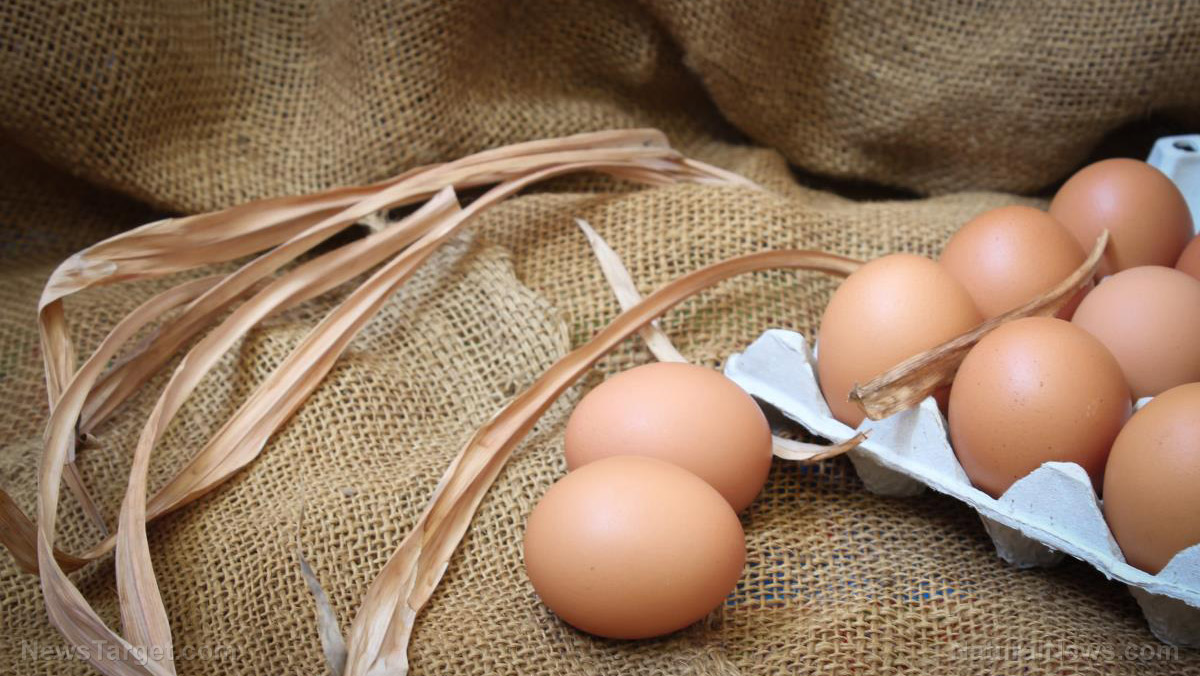
Advertisement
If you’re used to starting your day with coffee, orange juice, bacon, toast and some eggs, brace yourself – the price of wholesale eggs in the U.S. has skyrocketed to a shocking 180 percent from its regular price. And reports reveal that increased buying due to the coronavirus (COVID-19) pandemic is to blame.
It doesn’t look like the spread of the coronavirus will be stopped anytime soon. People are buying staples like eggs to add to their stockpiles, which is a normal reaction during times of disaster.
While it’s admirable that civilians are following recommendations to stay home during these troubled times, the surge of shoppers has contributed to stores experiencing supply shortages, leading to a shocking spike in prices.
The most recent Nielsen data shows that egg sales increased by 44 percent for the week ending on March 14 compared to 2019. Meanwhile, Walmart and other big grocers have implemented limits on purchases of eggs, cleaning supplies and other products that worried customers tend to buy more of.
Brian Moscogiuri, director and egg analyst at Urner Barry, a commodity market research firm, explained that consumers are buying staple items like eggs, bread, milk, and toilet paper in excess. But because the coronavirus pandemic is occurring on a national scale and for a longer period of time, the aftermath of bulk supply buying is more noticeable.
Moscogiuri added that retailers are ordering at least six times their normal egg volumes. The increase in demand has depleted the supply that producers were starting to build in preparation for Easter.
Now, buyers must pay huge premiums to secure loads of staple items like eggs.
According to Urner Barry, which publishes a daily benchmark for the industry, wholesale egg prices have skyrocketed to 180 percent since the beginning of March this year.
On March 20, the Department of Agriculture’s weekly report revealed that “[w]holesale prices for shell eggs rose precipitously through the week,” Additionally, companies were struggling to provide enough stocks to meet increased consumer demand for eggs.
When suppliers’ prices rise, grocers have two options: To make shoppers shoulder the cost or take the hit to their profits.
Desperate times have forced grocers to resort to both.
At a Stop & Shop in Boston, shoppers will notice the following sign: “Due to a limited supply and higher than usual demand, our suppliers have increased their prices on eggs. As a result, you may see higher prices starting Saturday, March 21, as well as potential interruptions in supply.”
Dennis Curtin, a spokesperson for Weis Markets in the northeast, commented that the grocer has decided to take “limited pricing action so far.” Suppliers have also notified the company that egg prices have increased.
At Morton Williams stores in New York, egg prices have gone up by 14 percent. The company is understandably frustrated that it has to pay double for eggs from its suppliers during the coronavirus pandemic.
Avi Kaner, a spokesperson for Morton Williams, shared that it is outrageous to see the egg industry doubling their prices because of increased demand. The move is affecting low-income New Yorkers the hardest, especially since many of them have lost their jobs at restaurants and hotels.
If there is anything to learn from this scenario, it’s that being prepared and setting up your stockpile ahead of time is crucial for when SHTF.
Egg substitutes
If you’re desperate to get your hands on some eggs but the nearest store has run out, here are some egg substitutes that you may have lying around in your kitchen.
Applesauce
Applesauce, a purée made from cooked apples, is often sweetened or flavored with spices like cinnamon. Use one-fourth cup (65 g) of unsweetened applesauce to replace one egg in most recipes.
When using a sweetened variety, reduce the amount of sugar or sweetener in the recipe itself.
Aquafaba
Aquafaba is the liquid that remains after cooking beans or legumes. You can also get aquafaba from canned beans or chickpeas. The liquid has a similar consistency to raw egg whites.
Use three tablespoons (45 g) of aquafaba to replace one egg. Aquafaba suits recipes that need egg whites, like macaroons, marshmallows, meringues or nougat.
Ground flaxseeds or chia seeds
Grind flaxseeds and chia seeds at home or buy ready-made seed meal from the store.
Whisk a tablespoon (7 g) of ground chia or flaxseeds with three tablespoons (45 g) of water until fully absorbed and thickened. The mixture will produce enough to replace one egg.
Using ground flaxseeds or chia seeds can make baked goods heavier and denser. This substitute may give the final product a nuttier flavor, so use it when baking breads, cookies, muffins, pancakes and waffles.
Vinegar and baking soda
Mix one teaspoon (7 g) of baking soda with one tablespoon (15 g) of vinegar to replace one egg. Use either apple cider vinegar or white distilled vinegar.
Combining the two ingredients causes a chemical reaction that produces carbon dioxide and water, which makes baked goods light and airy. Use this substitute for cakes, cupcakes and quick breads.
There are plenty of ways to solve the problem of overpriced eggs. Visit Grocery.news to learn more.
Sources include:
Advertisement
Advertisements
















